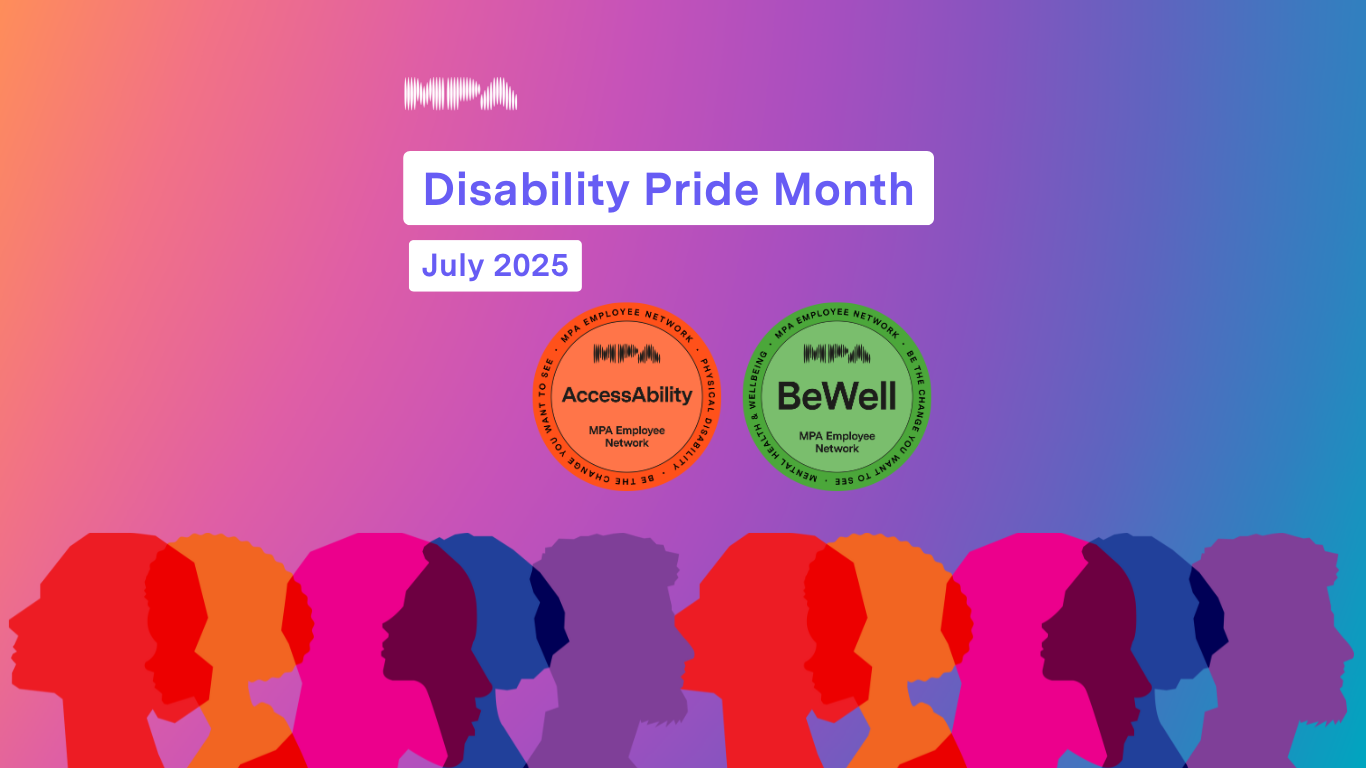Celebrating Disability Pride Month: Visibility, Voice and Value

Date
Disability Pride Month was first marked in July 1990, coinciding with the signing of the Americans with Disabilities Act (ADA), a landmark piece of legislation that prohibited discrimination against people with disabilities in the United States. Since then, July has become an annual opportunity not just to commemorate legal progress but to celebrate the diversity, resilience, and contributions of the disabled community.
While the ADA was a U.S. initiative, the sentiment of Disability Pride has gained momentum internationally, encouraging other nations including, the UK, to consider how disability rights, accessibility, and inclusion are progressing in their societies.
The month exists not just to highlight barriers but to promote pride in disability as an identity, and to challenge outdated narratives rooted in pity or limitation.
Why August Matters: Disability Pride Month
Disability can be visible or invisible, permanent or fluctuating, physical, sensory, intellectual, or neurodivergent. The World Health Organisation estimates that over 1.3 billion people globally live with some form of disability, making up roughly 16% of the population. Yet despite this, disabled individuals often face systemic challenges: from inaccessible infrastructure to limited representation and employment disparities.
Disability Pride Month invites us to rethink how we define ability, moving beyond medical models and instead embracing the social model of disability, which recognises that people are disabled not by their impairments, but by the barriers society places in their way.
How We Can Support People This Month
Supporting Disability Pride Month goes beyond social media posts or well-meaning slogans. Here are meaningful ways to engage this July:
- Listen and Learn
Centre disabled voices, whether through books, podcasts, blogs or social media. Prioritise lived experiences and reflect on what you might learn or unlearn. - Use Inclusive Language
Language evolves. Use respectful, identity-affirming language. Avoid terms that are outdated or reduce people to their conditions. - Challenge Ableism
Speak up against ableist language, assumptions or behaviours, whether in conversations, policy, or media. - Attend Events and Campaigns
Participate in Disability Pride parades, webinars, workshops, or awareness initiatives in your local community or workplace. - Donate or Volunteer
Support disability rights organisations, charities and local advocacy groups working to make change happen on the ground.
How Companies Can Foster Disability Inclusion in the Workplace
A truly inclusive organisation doesn’t wait for Disability Pride Month to make progress; it makes access and equity a year-round priority. Here’s how businesses can lead the way:
- Accessible Workspaces
Ensure physical and digital environments meet accessibility standards. That includes step-free access, screen reader compatibility, quiet spaces, and clear signage.Inclusive Hiring Practices
Review job descriptions, interview formats and onboarding processes to ensure they are accessible and welcoming to all candidates. - Disability Employee Networks
Create or support employee-led groups for disabled colleagues, offering peer support and a platform to influence policy. - Leadership Representation
Encourage disabled professionals into leadership roles and decision-making spaces to ensure authentic, informed perspectives are reflected. - Mandatory Training and Education
Incorporate disability inclusion and anti-ableism into all DEI learning programmes, going beyond awareness to build allyship and accountability
Disability Pride in the Music Industry
The music industry has long been shaped by the brilliance, resilience, and innovation of disabled artists. Yet, despite their contributions, many still face systemic barriers to access, recognition, and meaningful opportunity.
From the legendary composer Beethoven, who created masterpieces while profoundly deaf, to contemporary trailblazers like percussionist Evelyn Glennie and violinist Gaelynn Lea, disabled musicians continue to challenge stereotypes and redefine what artistic excellence looks like. Their stories remind us that disability is not a deficit; it can be a profound source of creativity, insight, and emotional depth.
Disability Pride Month is not only a time to celebrate these voices but also a call to action to dismantle the obstacles that still exist within the music world. A truly inclusive industry should be built on the following pillars:
Accessible Spaces: Venues, studios, and festivals must be physically and digitally accessible with step-free entry, accessible toilets, sensory-friendly areas, clear signage, hearing loops, and live captioning or BSL interpretation.
Authentic Representation: Disabled people should be seen and heard at every level, from the stage to backstage, from artists to producers, managers, engineers, and executives.
Career Pathways: Inclusive internships, accessible music education, and mentorship opportunities are key to ensuring disabled talent can thrive, not just survive, in this industry.
Lived Experience, Not Lip Service: Visibility matters, but it must go beyond token gestures.
Disabled artists should be celebrated for their full selves, with narratives shaped by their own voices, not filtered through able-bodied perspectives.
Music is for everyone, and the future of the industry must reflect that. By embracing disability and sexuality as a powerful facet of identity and creativity, the music world becomes richer, more diverse, and more human.
Resources
For more information or to join our BeYOU, and/or our AccessAbility Employee Networks, please contact:
Helen Choudhury
Head of DEI, CSR and Wellbeing
[email protected]
Safiyah Olaide
DEI, CSR and Wellness Officer
[email protected]
Share article